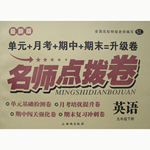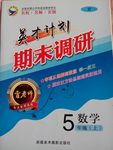题目内容
It is believed that if an event is _______, it will surely ______ the readers of the paper.
A. astonished; astonish
B. astonishing; be astonished
C. astonishing; astonish
D. astonished; be astonished
练习册系列答案
 名师点拨卷系列答案
名师点拨卷系列答案 英才计划期末调研系列答案
英才计划期末调研系列答案
相关题目

